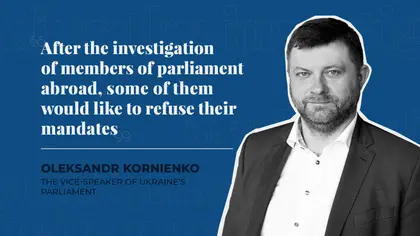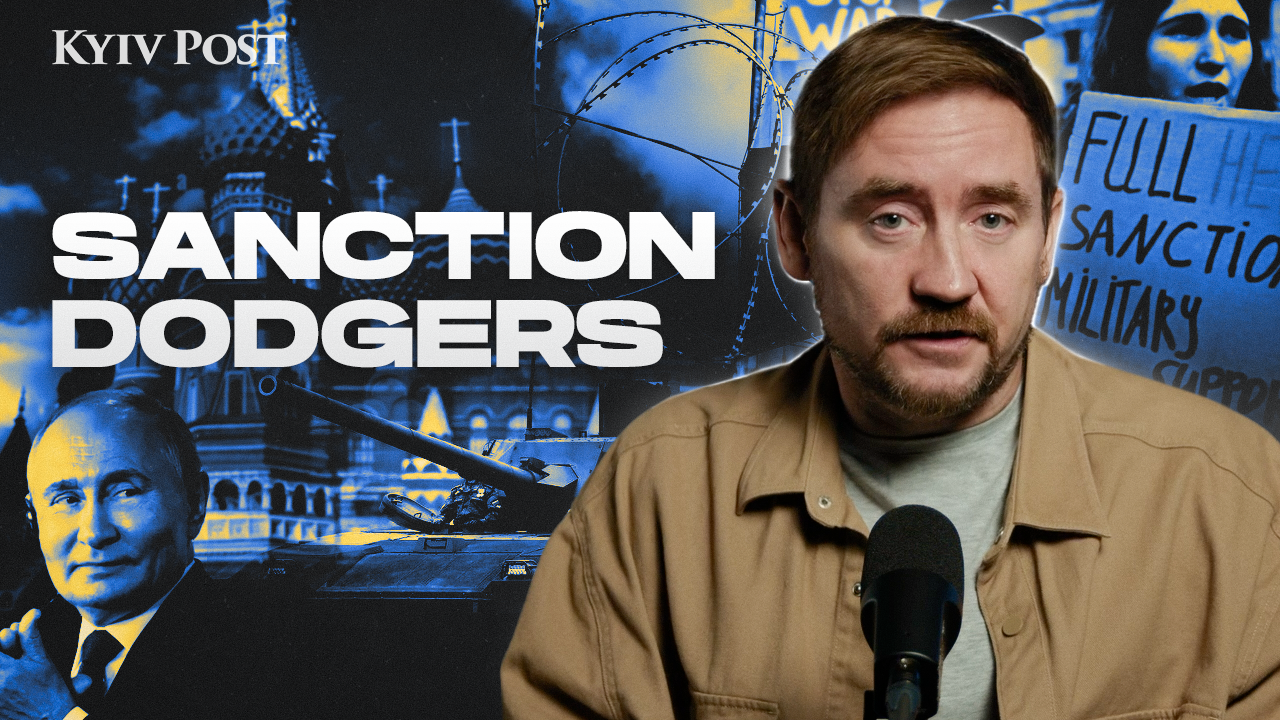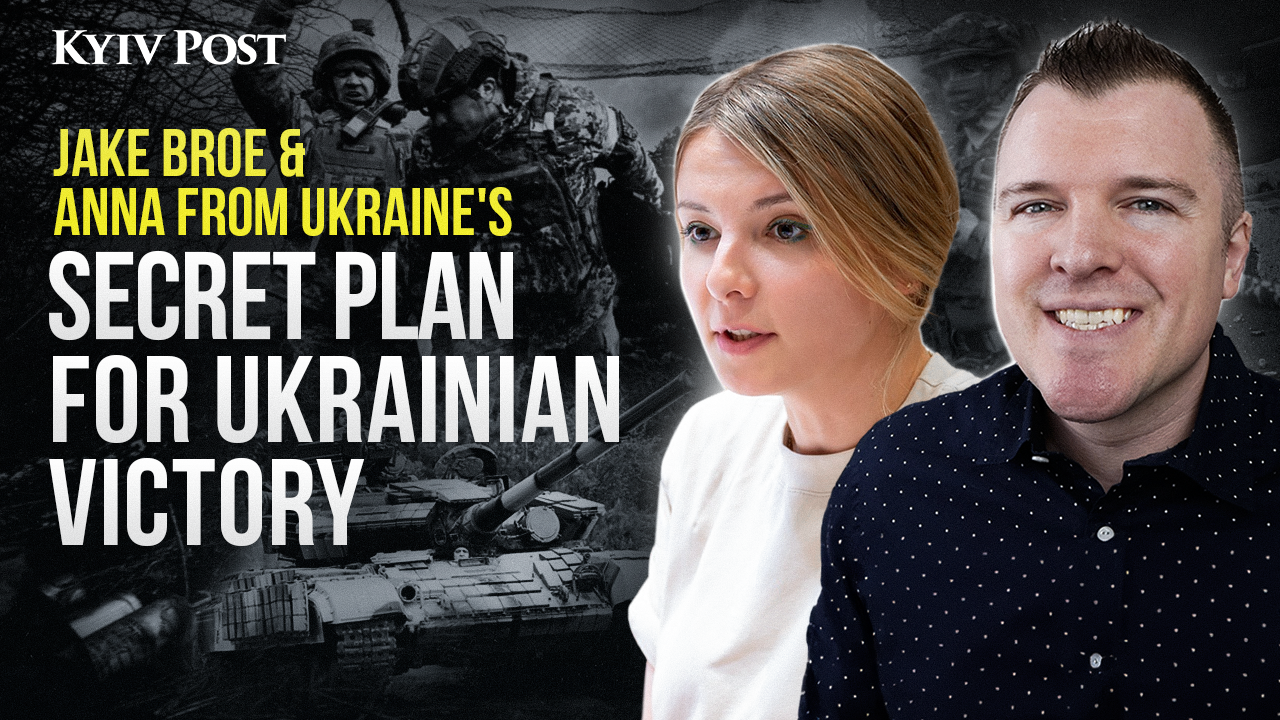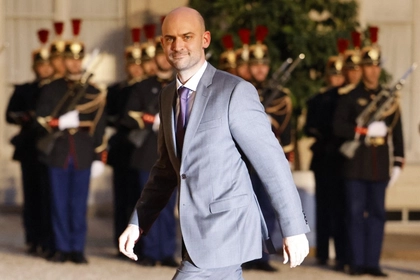In an exclusive interview with Kyiv Post, First Deputy Chairman of the Verkhovna Rada (VR), Oleksandr Kornienko, explained how parliament works during martial law; why a member of parliament (MP) from the former pro-Russian faction “Opposition Platform – For Life” (OPZZh) still chairs one of the committees of the VR; accountability of MPs who have gone abroad; and whether Ukraine is going to succeed in building partnerships with African and Asian countries.
What is the role of the Ukrainian parliament during the war?
JOIN US ON TELEGRAM
Follow our coverage of the war on the @Kyivpost_official.
Parliament has always had, and will always have, an important representative function. It is a body that represents the interests of various layers of society. According to legislation, parliament imposes martial law by approving the decree of the president.
When the war broke out, we faced an important challenge related to the adaptation of current legislation to martial law conditions. The Law of Ukraine “On the legal status of martial law” is antiquated and short; hence, we had to figure out how to combine it with other elements of modern-day life, such as decentralization. We worked hard on that.
In addition, we also have other tasks – mostly budget-related – as the war is an expensive endeavor. In 2021, parliament reviewed the state budget several times. Apart from that, we also have European integration-related tasks that need to be completed to confirm our candidate status. We are working on this and concurrently adopting the new laws.
![[VIDEOS] North Korean Troops in Russia Confirmed](https://static.kyivpost.com/storage/2024/10/19/a6f6a4c5d74d066019e5812a20c6514f.png?w=420&q=75&f=webp)
[VIDEOS] North Korean Troops in Russia Confirmed
The idea to ban the OPZZh by a court order, which took place at the beginning of the war, did not lead to sanctions against parliamentary factions of this party.
Incidentally, we managed to adopt even more laws than during previous years, even without regular plenary sessions. Compared to pre-war times, the frequency of parliamentary sessions dropped by 15 to 20 percent. But since these gatherings were focused solely on the discussion of new laws and voting, leaving aside any other political issues (although we kept speeches from parliamentary factions and discussions), the overall effectiveness of the parliament’s work increased.
Is the public’s engagement with parliament declining, given that the VR has always been the main source of news?
This might actually be a good thing. In many European states, people have a very pragmatic interest in parliament: which laws have been adopted and which haven’t, how it’s going to affect the lives of citizens, etc. In our country, however, the interest in the other aspects of parliamentary life – for instance, people’s social lives – has been too strong. It has pulled the focus away from topics parliament has actually been working on. Ever since the VR started to keep a low profile in the media, the pace and working environment has improved somewhat. However, broadcasts of parliamentary sessions are already making a comeback. We also have a network of blogger MPs who cover the work of the VR on their social media.
On the one hand, it could be seen as an area of concern, but on the other, this year made us realize that the absence of journalists on the premises or the lack of live broadcasts from the parliamentary halls is not the end of the world. The issues with the laws remained the same.
But we are going to work on improving the political culture in our society.
How do you picture parliament after the war? Will there be fights, behind-the-scenes agreements, ghost-voting, etc.?
No. In fact, the VR of the ninth convocation already has fewer such things. For example, we have already managed to leave the issue of ghost-voting behind. Also, I think there will be no place for fights during future convocations because the political culture is going to change.
I think it is also necessary to talk about eradicating political corruption. This problem is present in all parliaments of the world, but it is vital to work on rooting it out. In fact, the current parliament has several open criminal cases of corruption, but we see fewer cases of top-level corruption.
Are you considering a return to regular plenary weeks?
So far, there is no need for that – several meetings per month are more than enough. Safety is the key factor – it is far more dangerous to work under the glass ceiling of the VR building three times a week than two or three times a month.
How does the legislative process work now? It is no secret that most bills are agreed upon in the President’s Office (OPU).
“The legislative trinity” – consisting of representatives of parliament, the OPU, and the Cabinet of Ministers of Ukraine – is a very handy tool that we have been using for a long time in order to avoid constant vetoes from the president. On the other hand, the government should be ready to implement what MPs have agreed upon. This tripartite approach allows us to pass high-quality laws.
It is necessary to talk about eradicating political corruption. This problem is present in all parliaments of the world, but it is vital to work on rooting it out.
Does the OPU take into account MPs’ stance on the bills?
Some laws originate in the OPU and are introduced by the president. The government has started to register many bills. The experts evaluating public administration reform say it is a good thing that the Cabinet of Ministers have the legislative initiative. Many MPs draft the bills in close cooperation with the government and the OPU.
Do you happen to know how many MPs from the ruling party Servant of the People (SN) party and other political parties live abroad and come back only for sessions of the VR.
It’s hard to tell. According to the information from investigative journalists, five or six MPs live in Dubai. Yulia Tymoshenko (leader of the Batkivshchyna parliamentary faction) was there. Her colleagues informed us that she was on temporary leave, visiting her grandchildren. There was a preliminary investigation into Andrii Kholodov, a member of the SN party, who was reported to be in Vienna.
We do not have precise information on the number of MPs abroad, because we do not keep track of their departures and arrivals. The State Border Service has this information, but they can’t share it because it is against the law. So we can only guess on the basis of such investigations.
I think some 10 to 15 people travel this way.
And then again, what should be considered “living abroad?” Many MPs have real estate in other countries. If they send their families out of the country, that’s another thing, but it is still no good reason to state that they live abroad – they spend a couple of days there.
Are these MPs mainly from the former OPZZh party? There are no MPs like that in the SN party?
Yes, the majority are the MPs are from the former OPZZh. I do not have any such information about the SN.
What is your take on the National Security and Defense Council of Ukraine’s (NSDC) decision to ban MPs and other officials from traveling abroad without valid reasons and permission?
The question is about the trips that were not commissioned – as in Mykola Tyshchenko’s case [a former MP who has already been expelled from the SN party]. No one was monitoring how MPs were spending their vacations. Tyshchenko had a vacation at his own expense. One cannot take paid leave when martial law is imposed. Therefore, all the MPs’ vacations since Feb. 24 have been at their own expense. They are not getting paid for those days.
Before the decision of the NSDC it was enough to have a certificate of exemption from conscription and an application for leave, and one could travel abroad with an international passport – the same as with regular citizens. We did not check what the MPs were doing and whether they crossed the border at all. The VR bore no responsibility. But with Tyshchenko’s case, we saw that parliament would bear political responsibility for such incidents. Meeting with voters in Thailand is not going to be beneficial for anyone’s reputation.
I, however, think that the voters will demonstrate their opinions during the elections. Citizens are definitely going to ask the candidates where they were during the war and what they were doing.
Why? Firstly, this is not the main goal of MPs’ work abroad, especially since Tyshchenko was representing the Svyatoshyn electoral district of Kyiv, and that’s where his voters are. Secondly, Thailand is not one of the countries where an MP needs to go so urgently to meet with the local community. We do not have inter-parliamentary cooperation with them, they take a neutral position during the UN voting… When I was in Asia, I spoke with representatives of our embassy in Thailand. They say that the situation there is difficult, and we need to work harder to establish cooperation.
And that's why Tyshchenko left.
That’s how one needs to work with the Thai authorities, and not with the Ukrainian citizens there.
Therefore, the issue of trips abroad needed to be settled.
Let’s come back to Yulia Tymoshenko. Do you think she should be punished for staying in Dubai during the war?
This is the problem of the Batkivshchyna party – they believe it was a commissioned journalistic investigation. I, however, think that the voters will demonstrate their opinions during the elections. Citizens are definitely going to ask the candidates where they were during the war and what they were doing.
In the last couple of days, there was some whispering that certain MPs refused their deputy mandates. Can you name them?
We have not received any documentation about it yet. But taking into account the journalists’ investigation of MPs abroad, I think some of them would like to refuse their mandates. (On Monday, February 6, the head of the "Servant of the People" faction, David Arakhamiya, reported that MP from the former OPZZh Ihor Abramovych wrote a statement on drawing up a mandate)
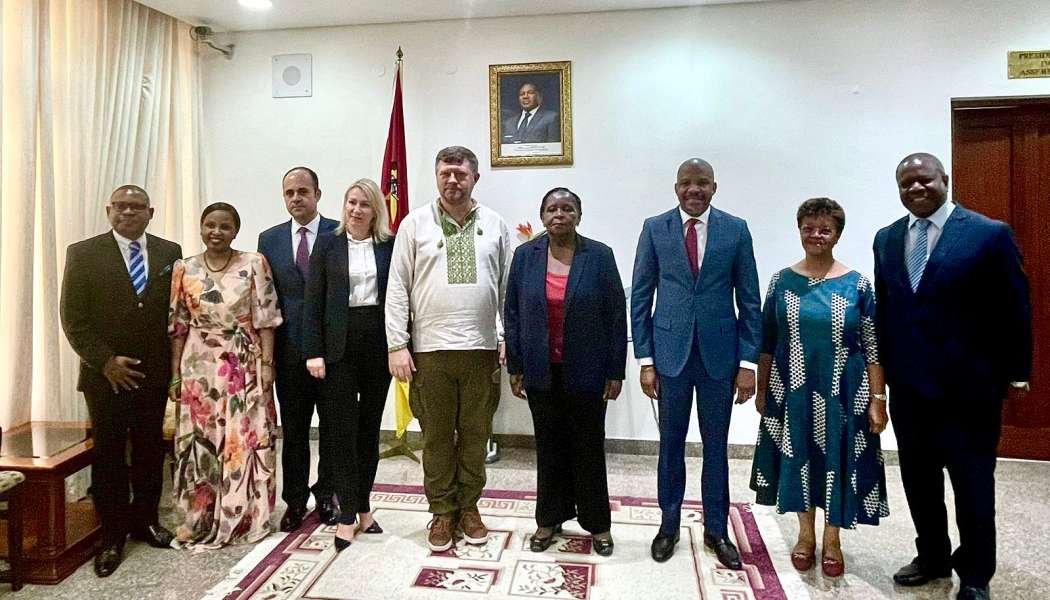 Oleksandr Kornienko and representatives of Mozambican authorities
Oleksandr Kornienko and representatives of Mozambican authorities
What about Yuriy Boyko and Nestor Shufrych – MPs from the OPZZh who managed to adapt to the new realities and now advocate for Ukraine’s integration into Europe? What can make these people give up their mandates as MPs?
Either their own will or a guilty verdict. It must be one of the five reasons defined in current legislation. For now, they are constantly present at the sessions of VR.
Why does Shufrych still chair the Committee on Freedom of Speech?
The other parliamentary factions have not nominated any candidate for this position.
Besides, at the beginning of the work of the parliament of the ninth convocation, we discussed the situation with the committees. Formally, it was the quota of the OPZZh, which has now split into two parliamentary opposition groups. And so the question pops up – whose quota is it now? Should we say that there is a “right” and “wrong” opposition? This is already discrimination.
From a regulatory point of view, these two groups are full-fledged participants in the process. They can delegate people to committees, and parliamentary delegations apply for leadership positions, etc.
Let’s say someone from the European Solidarity faction comes and says to appoint Victoria Syumar (MP) as a chairperson of the committee; but why not an MP from Batkivshchyna or Holos or other parliamentary factions?
It is a tough question since the idea to ban the OPZZh by a court order, which took place at the beginning of the war, did not lead to sanctions against parliamentary factions of this party. And they are still present in parliament.
But I think that decisions regarding the committee will be made. I think there will be a political demand to replace Shufrych, or he will leave himself.
The National Agency on Corruption Prevention (NAPC) is calling on parliament to bring back the rule requiring officials and political parties to submit electronic declarations. At what stage is this process?
At the end of last year, the head of the SN party, Davyd Arakhamia, submitted a corresponding bill. We agree with NAPC and the G7 ambassadors that it is time to move this bill forward.
When will it be voted on?
Bills are submitted by the majority – SN. There must be some internal issues with supporting the bill. Submitting the bill and not voting for it is also a bad signal.
My prediction is that this topic will stir activity in the near future, especially after the journalistic investigations into corruption.
After the Ukraine-EU Summit?
Possibly. We have the process of signing a new memorandum with the International Monetary Fund (IMF) lying ahead. I think the preliminary conditions will also concern anti-corruption measures.
Are you in favor of bringing back the declaration, but keeping the registry closed until the end of the war?
There are certain security issues when it comes to the registry. My personal opinion is that we should approach the declarants one by one. MPs, ministers, representatives of the OPU, heads of state-owned enterprises, etc. must submit electronic declarations for sure. But a good question is whether the security cabinet needs to do the same.
Therefore, we have to work on it. And, of course, we will insist on including the rule about bringing back this reporting for political parties. But very often parliament was unwilling to vote in favor, especially the opposition parties who do not submit reports – unlike the SN.
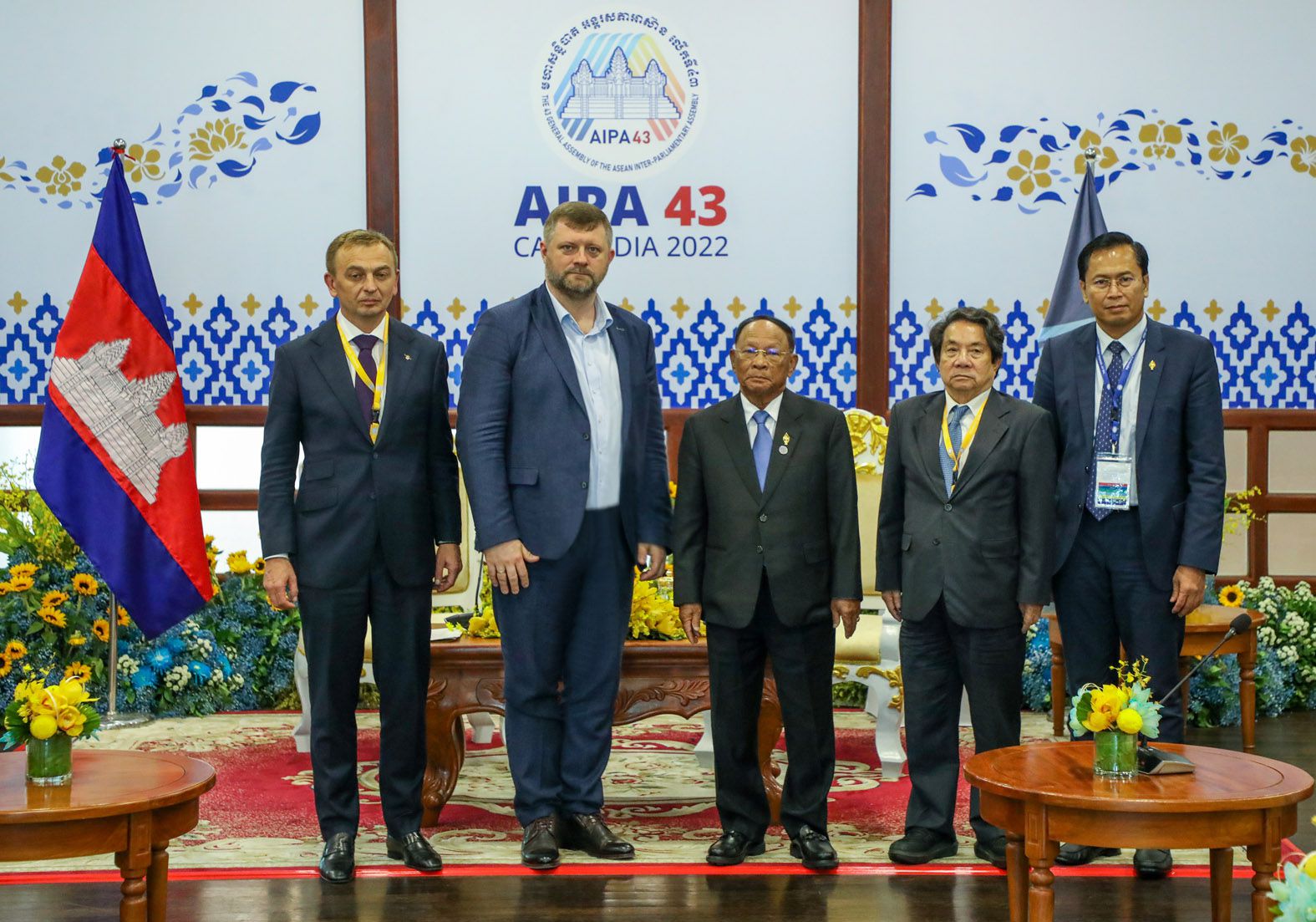
Can the reports of political parties also be closed inside the registry?
I think this way we face fewer security issues.
Will parliament vote again for the Constitutional Court reform? Our partners have reservations about the powers and composition of the body that will select candidates for the COP, due to possible risks of political interference.
We are currently waiting for the results of the negotiations conducted by the government. The VR is ready to promptly make the necessary decisions.
But why did parliament adopt the law in the first place? Wasn’t it obvious that our partners would not be happy with that?
There was this idea that the decision-making process by the competition committee regarding the selection of judges should not be blocked, and the voice of international experts should prevail. We thought that would be enough to us to satisfy the demands of our partners.
We have to work in Global South with the fact that Russia spreads the narrative that Ukraine is their territory. So we explain to them that Ukraine is a separate state.
Some MPs from the SN faction have already posted on social media that our partners demand too much and this is close to interference in our internal affairs.
There is a debate regarding state sovereignty. Unlike other courts, the Constitutional Court is the only body that can interpret the Constitution. It did not always interpret it logically – for example, it canceled the requirement for officials to submit electronic declarations. Then the constitutional crisis began.
But the question is whether there is really external influence on elements of state sovereignty. It is an important discussion.
You were a member of the parliamentary delegation to African and Asian countries. What mood they are in, and what are their opinions are about Ukraine?
The president outlined at the meetings that we need to work with the Global South. These are developing countries – the states of Africa, Southeast Asia, and Latin America. Since most of them do not support us, they abstain during voting in the UN, and they have close ties with Russia and China. As such, it is necessary to carry out as much communication and advocacy work as possible.
For example, Cambodia has already changed its mind, which is why our visit there last year became possible. African countries are also gradually changing their minds. In fact, Russia has not established a foothold there. In addition, they have questions regarding PMC Wagner and its activities in Africa.
Together with our European and American partners, we will work on establishing contacts with Africa. For example, our visit to Mozambique was the first since Ukraine gained its independence. Unfortunately, they abstain from voting in the UN. But sharing ideas about why they hold back is also important.
Which stereotypes about Ukraine do these countries voice most often?
We have to work with the fact that Russia spreads the narrative that Ukraine is their territory. So we explain to them that Ukraine is a separate state.
All this time, they’ve believed Ukraine was a part of Russia?
Yes, some still see Ukraine as a part of the USSR. So we explain to them that what is happening here is a war for liberation, and not a “special military operation,” as Russians claims. We explain what Ukraine is.
However, we have built some bridges. Many citizens of these countries who went to study in the USSR ended up studying on the territory of modern Ukraine because of our good education system. They understand why we are doing so well in the field of IT technologies when we show them Diia, the single portal of public services. They say: of course, you have such a good education. So we need to keep building these bridges. They want specific help. And when there are people in our delegations who can talk about this help, it helps to build better relationships.
What can we offer these countries, besides technology and grain?
Education and scholarships for studying here. We can organize bilateral programs and student exchanges. This way, Ukraine will spread its influence.
You can also highlight the text and press Ctrl + Enter


